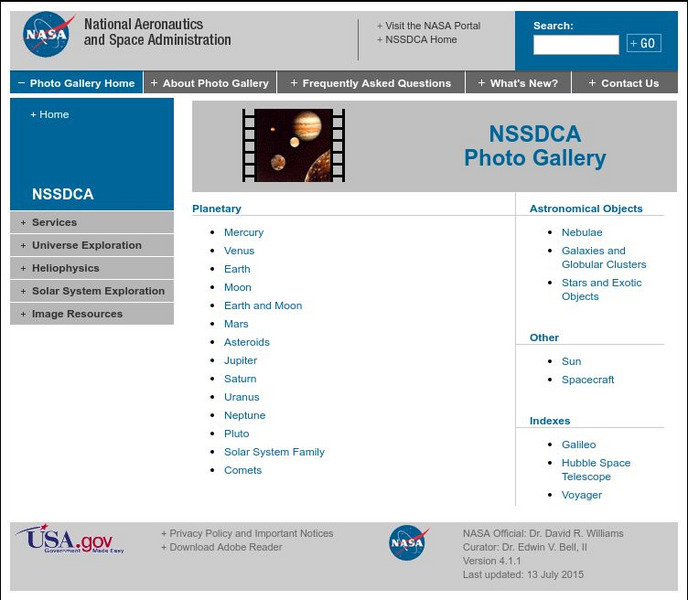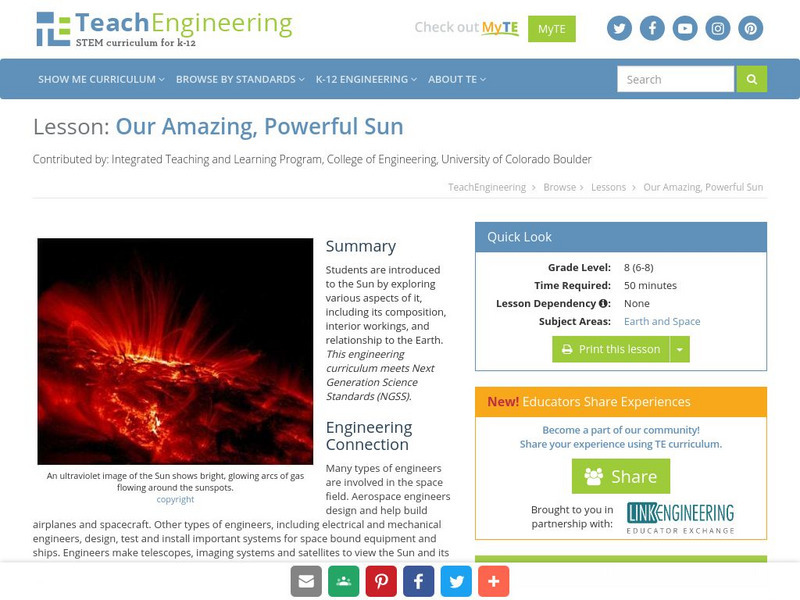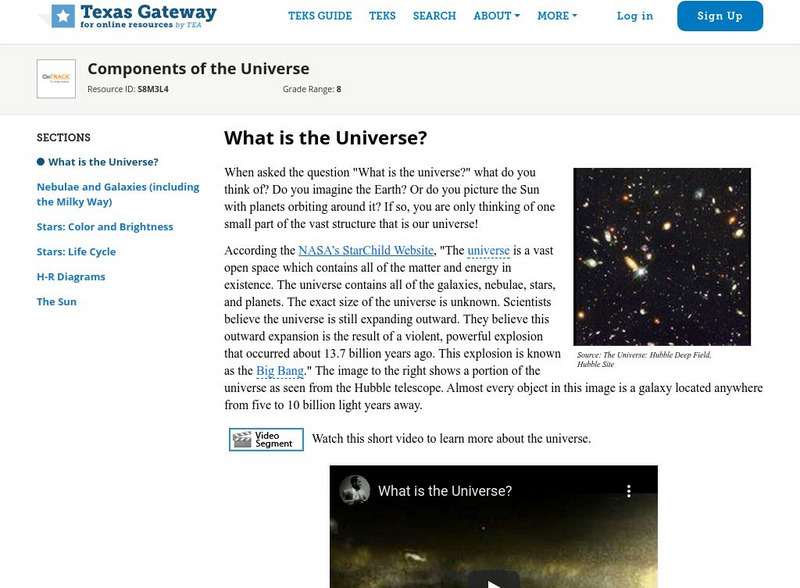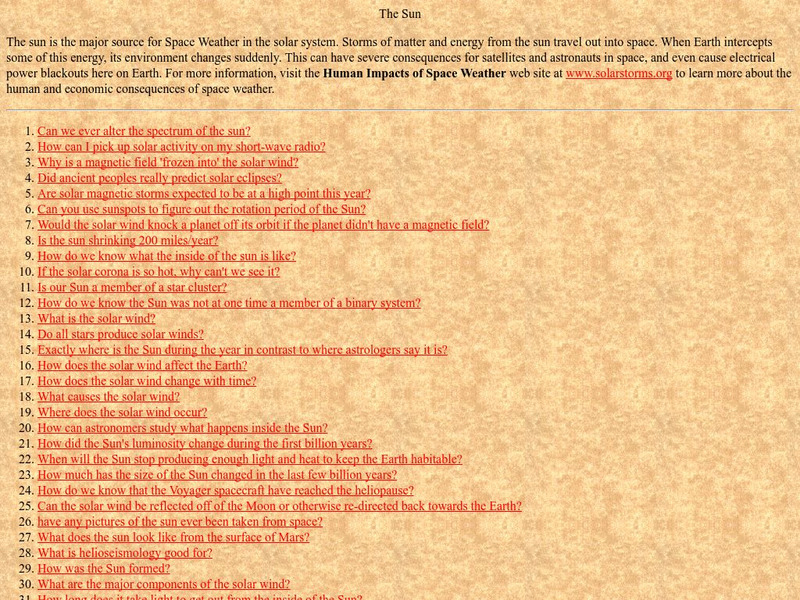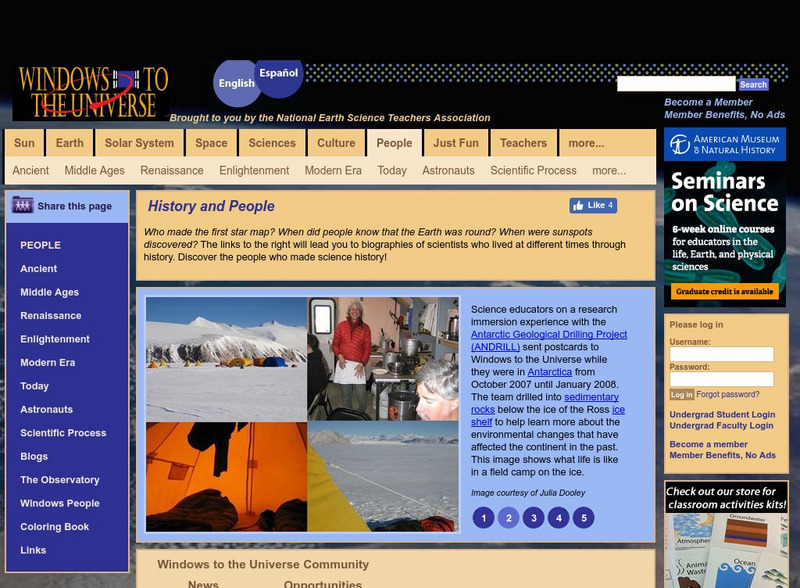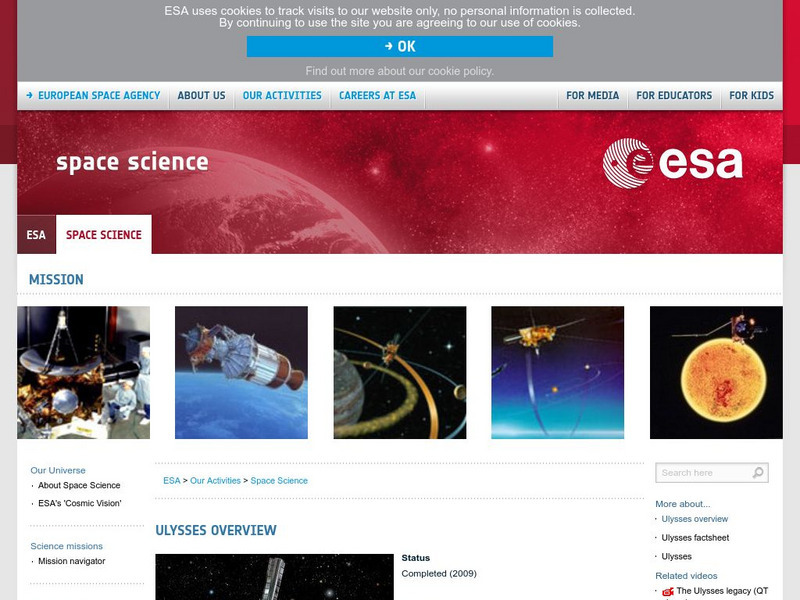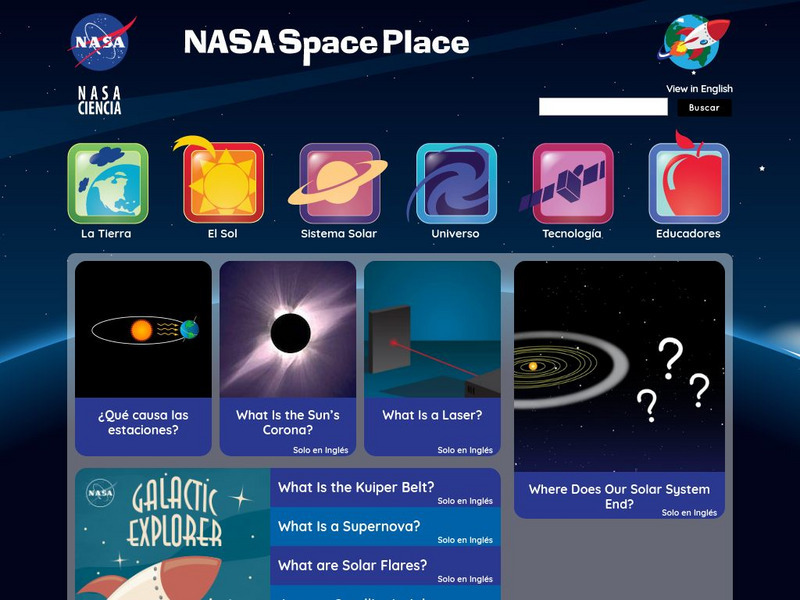Harvard University
Harvard University: The Solar System
These hands-on activities are a great way for students to gain perspective on the relative sizes and distances of each planet, the relationship between the sun and Earth, and much more.
NASA
Nasa: The Sun
An introduction to the Sun including its size and distance from the Earth, sunspots, flares and coronal mass ejections.
PBS
Pbs Learning Media: Sunspots on the Move
The following videos show sunspots using wavelengths of light that the human eye cannot see. Watch sunspots emerging on the earth's surface, a sunspot moving across the earth's surface, and the rotation of the sun as a sunspot evolves...
Other
Simple Science: Planetary Gallery
The innovative resource examines images of the Sun, Moon, Pluto, and all eight planets in the Solar System. Learners calculate the diameter of each object and rank the objects in order of size. The activity has an interactive online...
PBS
Pbs Learning Media: Our Solar System Lithograph Set
View these amazing high-quality images of our solar system from NASA with this lithograph set. Each lithograph contains images, facts, dates, and general information on a particular subject. Background information and teaching tips are...
NASA
Nasa: Great Images in Nasa
Fascinating collection of images from NASA, chosen for their historical or aesthetic significance. Images are searchable by subject, by NASA center, and by keyword, and each is available in three sizes. With links to more information...
NOAA
Noaa: National Weather Service: The Sun and Its Effect on the Earth [Pdf]
The Space Environment Center (SEC) put together a slide show for use by teachers on Space weather. Begin with discussing solar emission and the sun itself. Then end with a summary of climatic effects of space weather, and a note on space...
American Geosciences Institute
American Geosciences Institute: Astronomy
Eight hands-on lessons module in which students explore the characteristics of planet Earth, its moons, the sun, the solar system, planets, and the difference between science fact and science fiction.
NASA
Goddard Education: Eclipse 99
Information is provided about the eclipse of 1999; in addition, facts about elcipses throughout history are also included.
NASA
Nasa Space Science Data Archive: Photo Gallery
A website featuring a collection of images from NASA. Collection includes images of planets, comets, nebulae, galaxies, stars, sun, and spacecrafts.
TeachEngineering
Teach Engineering: Passive Solar Design
Young scholars are introduced to passive solar design for buildings--an approach that uses the sun's energy and the surrounding climate to provide natural heating and cooling. They learn about some of the disadvantage of conventional...
TeachEngineering
Teach Engineering: Our Amazing, Powerful Sun
Middle schoolers are introduced to the Sun by exploring various aspects of it, including its composition, interior workings, and relationship to the Earth.
Texas Education Agency
Texas Gateway: What Is the Universe?
The following tutorial is an explanation of what the universe is composed of.
Other
Sea and Sky: A Tour of the Solar System
Take a virtual tour of the solar system starting with detailed information about the sun.
NASA
Nasa: Image Science Center: Ask the Space Scientist
A NASA space scientist provides 98 questions and answers about the sun, the center of our solar system.
National Earth Science Teachers Association
Windows to the Universe: History & People
Biographies of people throughout history who looked at the sky and wondered what was there. Links to a detailed description of the planets and interactive activities.
Nine Planets
The Eight Planets: The Sun Solar Wind
This Eight Planets site briefly describes solar wind, a low density stream of charged particles emitted by the Sun. It also provides the basics on the sun's composition and additional sun links.
Other
Uso Eficiente De Energia Electrica
Learn about the efficient use of electric energy in Spanish. See the products and services responsible for saving energy.
Sophia Learning
Sophia: The Sun and the Moon Tutorial
Created to teach students of the 21st century, SOPHIA is bringing the sun and the moon straight to your fingertips. Become the commander of your own learning experiences as you take part in this interactive tutorial.
BBC
Bbc Schools: Ks2 Bitesize: Science: Physical Processes: Earth, Sun, and Moon
Help Sarah Jane and her team put the solar system's planets back in order. Following the activity, read more about the sun, the Earth, and its moon, and then take a quick quiz to check for understanding.
Crayola
Crayola: Celestial Characters (Lesson Plan)
A fun lesson plan incorporating language arts, science, and art. Students read myths and legends about the sun, moon, or stars, then create a sculpture, and write their own story about it. Also provides adaptations and a list of...
European Space Agency
European Space Agency: Ulysses Overview
This resource presents extensive information about Ulysses and its mission to the sun.
NASA
Nasa Space Place: El Space Place
NASA's space science site for kids - en Espanol. Features a wide range of activities, including games, projects, animations, and more. Also contains useful information on basic physics, chemistry, and other natural sciences, offering...
Annenberg Foundation
Annenberg Learner: Planet Earth
A series of seven instructional, hour-long videos presenting Earth-science topics such as plate tectonics, oceans, climate changes, natural resources, the Sun, and the future of our planet. Closed captioning option provided for each video.






